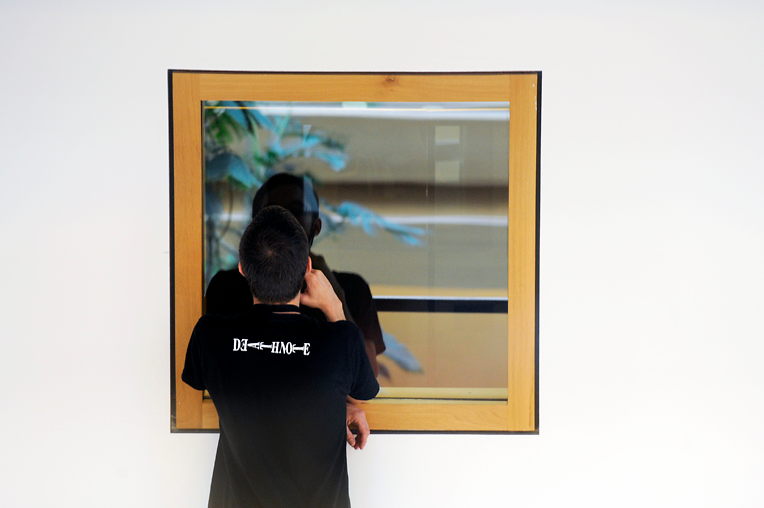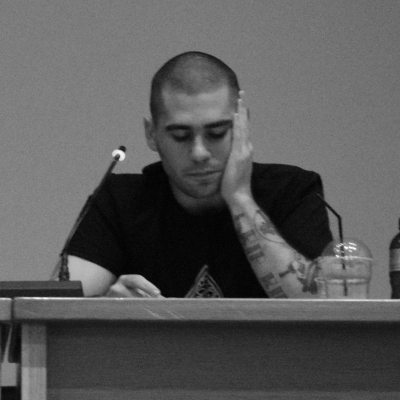There is here a conspiracy—not in the legal sense but in the etymological sense: everything “conspires,” “breathes together,” is blowing in the same direction—of a society in which all criticism is losing its effectiveness.~ Cornelius Castoriadis1
For some time now, there is a lot of talk regarding the role that fake news and conspiracy theories play in shaping public opinion. Populist politicians have used this trend in attaining positions of power or in shifting the blame for their failure to keep up with pre-election promises.
There is a certain strand of political theory that seeks blame in the tribune that social media provides to growing amounts of people.2 Such logic, however, is deeply anti-democratic as it sees the problem in giving voice to the many, overlooking the current systemic features that create and maintain an environment of cynicism and alienation.
Fortunately, there are voices who address the problem of power distribution, instead of indulging in agoraphobia. Castoriadis is among those who have addressed this issue. For him, we live in heteronomy—a type of hierarchical and exploitative social organization where the majority of people is constantly being convinced that there is no other way. In such conditions a generalized sense of insignificancy arises, provoked by the detachment of power (in the face of capital, bureaucracy, god, historic determinism, tradition) from the grassroots, and its elevation to the highest value. This is particularly true for capitalist societies, where consumption becomes the leading meaning of life.
According to Castoriadis, one of the manifestations of this crisis of insignificance is something called the crisis of criticism.3 In our society, he suggests:
… discordant or dissident voices are not stifled by censorship or by editors who no longer dare to publish them; these voices are stifled by the general commercialization of society. Subversion is caught within the all and sundry of what is being done, of what is being propagated. […] Contemporary society has a terribly great capacity for stifling any genuine divergency, be it by silencing it, be it by making it one phenomenon among others, commercialized like the others.[…] [D]ue to the very fact that something is the top story for twenty-four hours, it becomes insignificant and ceases to exist after these twenty-four hours are up, because one has found or one has had to find something else to take its place.4
In other words, information becomes an asset in the service of economic growth—just like our very interactions with one another on social media have been turned into economic activity. In this paradigm quality gives way to quantity. Media outlets compete with one another who will provide greater flow of news (with often what is being presented can barely be classified as news). And since there is capitalist competition involved, each one attempts to attract a greater audience, by the means of sensationalism, clickbait etc.
This environment tends to disincentivize the public. With the constant presence of a screen in front of our face, where news, announcements, and information are popping up from all sides, one is introduced to an environment of rapid info-consumption, where intriguing, or downright shocking, titles prevail over content and critique. This leads to the reduction of “attention span”—the useful duration of attention of a viewer. For Castoriadis, this attention span is gradually falling from a couple of minutes to a couple of seconds. He points to the fact that nowadays commercial spots of just a few seconds are among the most effective means to sell a product, but also to run a presidential campaign. And for such a short period of time nothing of substance can be transmitted, and neither can it be critically reflected upon.5
And here we come to the problem of contemporary politics, or what should be more correctly called pseudo-politics. What I refer to is the electoral dimension of representative oligarchy (wrongly called ‘representative democracy’). At the core of contemporary oligarchic regimes is the competition for power between bureaucratic parties. As Castoriadis correctly observes, they “chase after votes by any means whatsoever. […] They have no program. Their goal is to remain in power or return to power, and for that end they are capable of anything.”6 And we can see how far this trend has gone, as contemporary electoral campaigns look more like ‘reality TV’ than anything that has to do with political debate. Differences between candidates for power are nowadays sought in their supposed “honesty,” “elegance,” and even “attractiveness.”
This comes to help the system go through the deepening crisis of representation, since all sides of the electoral spectrum share a common belief in statecraft, and thus neither offers any alternative, but only minor variations of the same bureaucratic, top-down rule. Thus, differences are sought in other, celebrity-type of differences. This trend has resulted in almost completely omitting any form of political debate from the mainstream, which greatly contributes to the deepening of the crisis of criticism.
Genuine politics, in the classic direct-democratic sense of the term as mass popular participation in public affairs, is by definition a process that encourages the constant re-examination of existing laws and institution by the people. Thus, political deliberation is about criticism and interrogation. But in the conditions of electoral oligarchy the great majority is excluded from decision-making and only a small elite is vested with all the political power. As a result, this narrow group is most interested in preserving its privileged position, rather than anything else. Because of that we can observe, together with Castoriadis, that the professional politicians
conduct their electoral campaigns solely by following the polls—opting each time for what suits public opinion. […] There is an intrinsic tie between this sort of nullity of politics, this becoming-null of politics, and this insignificancy in other fields, in the arts, in philosophy, or in literature. That’s the spirit of the times: without any conspiracy on the part of any specific power one could point to, everything conspires together, in the sense of respiring, of breathing, of heading in the same direction, thereby yielding the same result, that is to say, insignificancy.7
In this sense, in what passes today for political debate the interrogation and re-examination of what already exists is not only unencouraged, but it is opposed. Accepted “truths” become points of reference for parliaments and party functionaries. We have seen this play out during the Covid-19 pandemic and the Russian invasion of Ukraine, where simplistic campism dominated the public debate.
From the above we can conclude that the deepening crisis of criticism is not due to the rise of social media that has allowed everyone to comment online, but the dominant oligarchic political architecture and the economic growth doctrine that tends to turn everything, including information, into financial asset.
According to Castoriadis, however, everything is not lost. He insists that
humanity has not degenerated biologically; people are still capable of paying attention to a well-reasoned and relatively long speech; but it is also true that the system and the media “educate”—that is, systematically deform—people, in such a way that they finally won’t be able to show an interest in anything that lasts beyond a few seconds, or at most a few minutes.8
This is important, because it suggests that we can re-educate ourselves otherwise.
What has to be done then? One of the most important things is, following the experience of some of the direct-democratic movements of the last decade, such as Occupy, Indignados, Yellow Vests etc.—the recreation of a genuine public space of popular participation. Because, as Castoriadis’ thinking suggests, criticism cannot be confined within an individualist framework. It most certainly requires also a collective dimension, where people get to test their ideas against those of their fellow citizens, and from this process to reinstitute a process of questioning and reexamining of established “truths.” Individualist “freethinkers” run the risk of falling into different conspiracy rabbit holes, which in turn diminishes further their ability to critically examine reality. And this is important as it underlies the need to go beyond the alienated and individual dimensions of capitalism and oligarchy and move towards the participatory and cooperative ones of direct democracy.
References:
1 Cornelius Castoriadis: Crossroads in the Labyrinth Vol.4 (anonymous translation, 2022), p112. (available online at http://www.notbored.org/cornelius-castoriadis-crossroads-4-rising-tide-of-insignificancy.pdf)
2 https://www.scientificamerican.com/article/information-overload-helps-fake-news-spread-and-social-media-knows-it/
3 Cornelius Castoriadis: The Rising Tide of Insignificancy (anonymous translation, 2003), p130.
4 Op.cit 3, p130-131.
5 Op.cit 3, pp131-132.
6 Cornelius Castoriadis: Postscript on Insignificancy (anonymous translation, 2017), pp8-9.
7 Op.cit 6.
8 Op.cit 5.
Source: Black Rose Books
Teaser photo credit: 14 July: A man is looking inside the room where the ballot box to elect a new president of the EP are being opened ©European Parliament/Pietro Naj-Oleari Attribution-NonCommercial-NoDerivs 2.0 Generic (CC BY-NC-ND 2.0)






